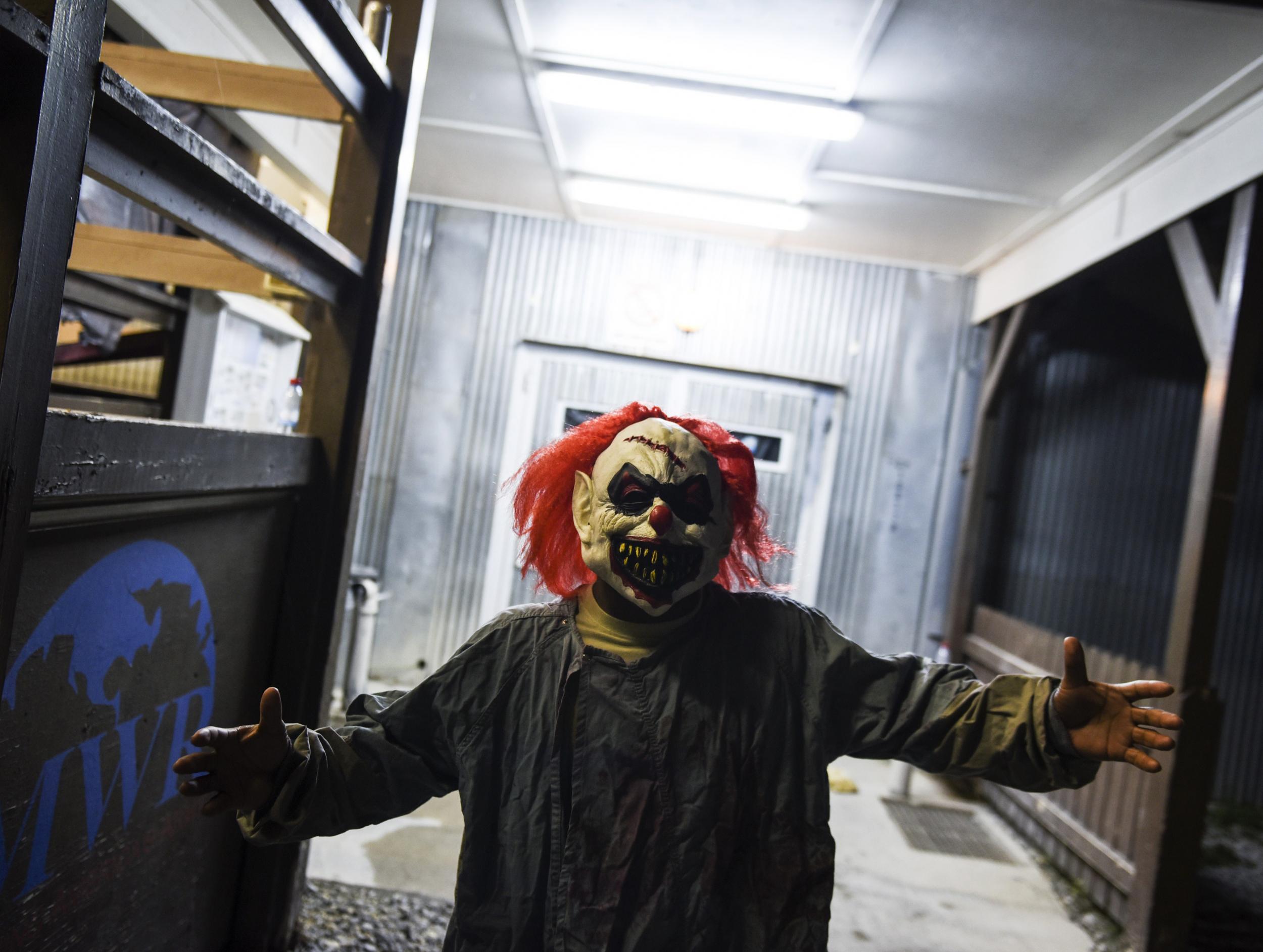The killer clowns craze tells us something very troubling about internet culture
With diminishing attention spans on social media, the long haul prank loses out to the arbitrary smacking of strangers. The machete-wielding clown prevails over the Kutcheresque

Your support helps us to tell the story
From reproductive rights to climate change to Big Tech, The Independent is on the ground when the story is developing. Whether it's investigating the financials of Elon Musk's pro-Trump PAC or producing our latest documentary, 'The A Word', which shines a light on the American women fighting for reproductive rights, we know how important it is to parse out the facts from the messaging.
At such a critical moment in US history, we need reporters on the ground. Your donation allows us to keep sending journalists to speak to both sides of the story.
The Independent is trusted by Americans across the entire political spectrum. And unlike many other quality news outlets, we choose not to lock Americans out of our reporting and analysis with paywalls. We believe quality journalism should be available to everyone, paid for by those who can afford it.
Your support makes all the difference.I am not coulrophobic. I am not afraid of clowns. I am, however, afraid of 30-year-old men dressed as John Wayne Gacy standing alone in the midnight bushes.
The “killer clown” hoax is just the latest manifestation of our increasingly vacuous prank culture. In Norwich last Sunday, for example, a man wearing a clown mask and circus shoes scared a women walking alone in the park at 8:30pm. On Friday, in County Durham, a man dressed as a clown and armed with a fake machete followed four children home from school. The victims rightly called the police. The suspects claim it was just a silly prank.
Contemporary pranksters believe the fact of the prank exonerates them of responsibility. It is now apparently acceptable to act immorally, or even illegally, as long as it remains a joke. One can slap an innocent bystander, steal someone’s food or grope a random stranger in the street and get away with it because it is “just a prank”.
Online demand for such capers seems to have muddied the ethical boundaries of prank culture. In the cluttered and democratised world of cyberspace, it pays to be attention-grabbing and offensive. The public seldom embrace the banal. Web users don’t share videos of friends succumbing to the whoopy cushion or the phony stick of gum, they share compilations of pulling strangers’ trousers down and throwing dog s**t at people .
The more offensive the prank, the more shares received. This has led to the rise of culturally insensitive pranksters, such as Jalal and Joey Salads, which exploit and reinforce prejudice to cause maximum offence. Such pranks are utterly gratuitous and lack any real context, but are nonetheless successful as judged by likes and shares – the raison d'etre of the contemporary prankster.
Violent pranks are increasingly popular, too. New videos surface every day of folks picking fights and grabbing women on the street. Users on social media award these pranksters for their purported bravery – essentially the ability to take a punch – rather than actual ingenuity, once the basis of the great prank. The offensiveness and the violence is brushed away by the prank’s supposed exoneration, exemplified in videos of confused cameramen running towards angered victims shouting “chill, dude, it’s just a prank”.
With diminishing attention spans on social media, the long haul prank loses out to the arbitrary smacking of strangers. The machete-wielding clown prevails over the Kutcheresque. Users want quick pranks, preferably several in succession, the more wantonly violent and vacuously offensive the better.
Where is the line? Ethically, we are all free to prank friends and strangers alike, as long as it doesn’t cause harm. The contemporary prankster – both violent and offensive – fails to grasp this most basic idea of individual liberty and, indeed, human decency.
The clown in the bush armed with a fake machete, screaming at strangers walking alone, can cause serious psychological harm. The man slapping or groping an unassuming stranger can cause psychological and, again, physical pain. These are not harmless pranks; they are immoral acts. Yet the modern prankster believes harm is somehow avoided because, after all, it is just a joke and anyway prankster has gained seven new followers.
But the camera does not award the prankster freedom to cause harm. Actions still have consequences. Offensive and violent pranks are neither clever nor funny, and their perpetrators are little more than morally bankrupt clowns – euphemistically, if not literally. They are ethically wrong and we should stop indulging them.
Join our commenting forum
Join thought-provoking conversations, follow other Independent readers and see their replies
Comments